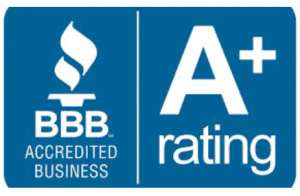Sleep King - Where the Prices Are a Sweet Dream!
There are a lot of mattress companies in South Carolina that claim to have the perfect mattress for everyone. At Sleep King, we believe that every person is different and has different needs when it comes to their mattress. That's why our mattress store in St. George, SC, has a wide variety of beds and brands to choose from. That way, you can find the right mattress for your body and get the very best sleep quality possible.
As a family-owned and operated mattress store with more than 40 years of experience in the sleep industry, we know a thing or two about comfortable mattresses. St. George residents choose Sleep King because we provide our customers with a personalized shopping experience. When you walk through our showroom doors, we want you to feel comfortable - both on our mattresses and with our store associates. At Sleep King, you won't ever have to worry about pushy salespeople and limited selection. Instead, you will discover that we encourage you to take your time as you search for your next bed. Sleep is incredibly important, and by proxy, finding the right mattress for your body type is too.
When you visit our showroom in St. George, know that we are a full-service store with mattress experts ready to help. From questions about mattresses and their warranties to financing and mattress delivery, there's no question we haven't heard before.
We carry some of the most popular brands in America, and unlike other mattress stores in St. George, offer them at the lowest prices around, guaranteed. There's a reason why we were voted your #1 mattress store in the Lowcountry - because we truly care about our customers and their quality of sleep!
Looking for discounts? Need to buy your mattress on a strict budget? We've got you covered at our new mattress clearance center in St. George, where we have more than 50 models on display at 50-80% off retail value. Don't forget to ask us about our flexible financing options, where no credit is needed to make a purchase. Paying cash? We'll knock 5% off your bill!
As if that weren't enough reason to visit, remember that we provide free delivery, setup, and removal of your old mattress for FREE when you make a purchase at Sleep king.
Some services and products are only available for local residents. Please contact SleepKing for details
Contact NowWhy Choose Our Mattress
Store in St. George, SC?
Our business model is simple - give customers quality beds from national brands at amazing prices, coupled with unmatched customer service. We know that your sleep is essential but also understand that normal folks aren't made of money. You need a solution that isn't going to break the bank, which is why we offer up to 75% off our products.

When we say we have a bed for every budget, we're serious.
A few of our mix and match deals include:
| Sets | Prize |
|---|---|
| Twin Mattress Sets Beginning | at $169.00 |
| Full Mattress Sets Beginning | at $199.00 |
| Queen Mattress Sets Beginning | at $229.00 |
| King Mattress Sets Beginning | at $449.00 |
Of course, a mattress would be incomplete without a headboard, footboard, and rails. For queen mattresses, those items combined are only $199. At our mattress store, we pledge to beat any competitor's price on similar product specs - guaranteed! Here are just a few of the benefits of shopping at Mattress King
- *FREE* Bed Frame for Your New Bed*
- *FREE* Same-Day Local Mattress Delivery to Your Home*
- *FREE* Set-Up & Removal of Old Mattress from Your Home*
- *FREE* Mattress Pad Included with New Mattress*
- Rest Easy with Our 60-Day Comfort Guarantee
- We Have the Best Selection of Mattresses in St. George with Five National Vendors
- On-Time Delivery
- Best Warranties in the Industry
- Sleep King Will Beat Anyone's Advertise Price by $50*(on purchases $299 and above)
- 0% Financing for 48 Months (APR, With Approved Credit)
- *See Store for Additional Details

Our Selection of
National Mattress
Brands
At Sleep King, we carry the largest selection of high-quality national brand mattresses in St. George.


Sleep King MLILY Mattresses
Often considered the best mattress brand in the world, innovation sets MLILY mattresses apart from others. Our customers love MLILY mattresses because they are expertly built through decades of research and rigorous testing. The folks at MLILY are committed to precision, meaning every detail of product detail they push is geared towards the ultimate satisfaction and comfort.

Sleep Restonic Mattresses
Restonic Mattresses: Restonic line of mattresses are multi-layered beds with cooling foam technology that adds resilience, support, and temperature control. The result is a cool, comfy sleep that leaves you refreshed and ready to attack the day.

Sleep King Comfort Sleep Mattresses
Every mattress in the Comfort Sleep lineup has a great combo of support and comfort, making for a restful night's sleep. With heavy-gauge coils and high-performance materials, these mattresses are durable and built to last. Be sure to try one of these mattresses out in our showroom - our customers love the pocketed coils and minimal motion transfer.

Sleep King Golden Mattresses
The Golden brand is lesser known than some, like Tempurpedic. Still, it is a quality product with many foam and non-foam options that we think you'll love. Choose from standard memory foam, hybrid, and innerspring options while visiting our showroom in St. George.
Tips on Choosing the Best Bed
There's much more to choosing a good bed than how you think it will look in your bedroom. There's plenty to think about, from innerspring options to memory foam and even hybrid mattresses. At Sleep King, our priority is our customers. We pride ourselves on excellent customer service. We want to do right by you, which why we want to be sure you find the perfect bed when you visit our mattress store in St. George, SC. To help you get started, here are a few tips on choosing the best bed for your sleep needs.

Visit a Showroom
This tip might seem like a no-brainer to some, but it's important that you visit a showroom so that you can lay on different beds to get a feel for what you like. At Mattress King, you will have the chance to explore different styles, designs, and shapes, and mattress materials. Finding a bed online at a price you can afford is great, but you should lie on the bed first, not just look at it on a screen.


Determine Budget
Here's a surprising fact: just because a mattress costs more money, it doesn't mean it's going to be a better bed. Sure, more expensive beds might have newer technologies and materials, but not everyone has the budget to walk into a mattress store in St. George and spend $3,000. Figure out what price range you're comfortable paying and look at the best options for your bottom line.


Consider Bedroom Size
Before you swing by our showroom and start trying out beds, it might be a good idea to measure the space where your new mattress will go. If your bedroom is on the small side, a king-sized bed might be too big. Similarly, a small bed in a huge room might make for strange aesthetics. Aim for a reasonable amount of room around your bed - enough where you can walk around comfortably. As mentioned above, get specific measurements of the area you plan to use. That way, you have peace of mind knowing your new mattress will fit in your bedroom.


Choose a Mattress Material
This tip often comes down to personal preference. It will take a little bit of trial and error to figure out which material works best for your back - innerspring, memory foam, or latex. While your friend's and family's opinions matter, keep in mind that their mattress choice was subjective. What works for them won't necessarily work for you.
Need a quick refresher on different mattress materials? Here's a quick overview

Innerspring
Also called coil mattresses, innerspring beds are probably the most well-known on this short list. Innerspring mattresses are often more affordable than their latex and memory foam counterparts. These beds are ideal for people who want a lot of support and a cooler night's sleep.
Latex
This material is known for its great cooling properties and overall comfort. With latex, there are no strange off-gassing odors like you sometimes get with memory foam. Latex mattresses are ideal for people who want a responsive, bouncy feel and may have problems sleeping hot.
Memory Foam
First developed by NASA in the 70s, memory foam is probably the most popular material in the modern mattress market. Memory foam conforms to every inch of your body, giving you maximum comfort and support. Memory foam is also know for its anti-motion properties. Memory foam can be a great choice if you tend to toss and turn at night and sleep with a partner who wakes up when you do. Memory foam mattresses are ideal for people who need pressure relief, good support, and refreshing comfort.

Think About Your Back
If you have a bad back, it's crucial that you find a mattress with proper support. Slat and spring beds often offer plenty of support, but latex and memory foam options have come a long way. If you want memory foam or latex but find the support to be subpar, consider an adjustable base instead of a normal platform. That way, you can always sleep in a comfortable position that benefits your back.

Your Premier Furniture Store
St. George, SC
You read that right! Sleep King is the first choice for quality beds in St. George, but we also have a huge selection of furniture for your home. If you're looking for a one-stop-shop for mattresses and furniture alike, you have come to the right place. If you're shopping for a new mattress at the best price possible, why not throw in a bedroom suite at an amazing price too?
A few common furniture items that our customers love to add
to their mattress purchase include:

Living Room Sets - from traditional-style suites with classic textures to modern sets with attractive upholstery, we will help you find the best living room set for your home.
Bedroom Suites - our bedroom suites range from contemporary to classic and come in a variety of colors and styles to compliment your new mattress purchase.
Daybeds - from English-style daybeds available in espresso and cherry colors to multi-purpose beds with pull-out trundles, our selection of daybeds is unbeatable.
Futons - if you have younger children, they will love our futons. Who are we kidding? Adults do too! Futons are incredibly useful in small spaces and convert into comfy-cozy beds perfect for kids of all ages.
Bunkbeds - bunkbeds are another great option to consider if you have kids. Whether you have a classic-style home or an apartment, we have a style that fits you.
At Sleep King, we are proud to have the lowest prices in the Lowcountry
If you like what you see but don't have time to visit our mattress store in St. George, don't worry. Our online store is bursting with new items and deals every day. From mattresses and bedding to furniture sets and special sale items, Mattress King has got it all. With the highest quality mattresses, the best prices in St. George, a giant showroom with all the options, and a full team of helpful sales associates, you won't ever need to find another mattress and furniture store again!
GET FREE ESTIMATELatest News in St. George, SC
The George in Georgetown, SC, Is Now Open
Newsdeskhttps://www.travelagentcentral.com/hotels/george-georgetown-sc-now-open
The George Hotel has opened its doors to welcome guests. The design-forward waterfront property from Indigo Road Hospitality Group and Winyah Hospitality has 56 rooms and suites alongside a full-service restaurant, marina bar and private event spaces, making it the first of its kind on South Carolina’s Hammock Coast.Georgetown, SC, is a common stopover for boaters traveling the eastern coast and The George offers prime marina ac...
The George Hotel has opened its doors to welcome guests. The design-forward waterfront property from Indigo Road Hospitality Group and Winyah Hospitality has 56 rooms and suites alongside a full-service restaurant, marina bar and private event spaces, making it the first of its kind on South Carolina’s Hammock Coast.
Georgetown, SC, is a common stopover for boaters traveling the eastern coast and The George offers prime marina access, allowing boaters the opportunity to enjoy the hotel’s amenities, while also providing a port for guests to enjoy excursions, such as fishing and sailing, in Winyah Bay. In addition to on-site activities and events, The George offers a variety of spaces that can be booked for semi-private and private events, including a meeting and event room, outdoor greenspace and bar, Eliza’s, and on-site restaurant, The Independent.
Housing 56 rooms, 42 of which are waterfront, the hotel has been curated by Jenny Keenan Design, which used a collection of vintage European furnishings and custom pieces. The lobby sports two-toned hardwoods and lime-washed plank walls, patterned sofas, wing-backed chairs and "oriental" rugs. The corridor of the first floor displays a large painting of a mermaid and alligator by artist David Boatwright of Charleston.
There are several room types, including two suite variations with living rooms and balconies, the largest being approximately 725 square feet. Each guestroom includes vintage seating and sideboards with custom fabric headboards ranging from detailed chintz to soft pastel stripes. Rooms vary in color scheme, while cypress softwoods stripe the floors and walls of communal spaces.
Located within The George Hotel, The Independent is a seafood restaurant and raw bar paying homage to the community’s former seafood market by the same name. Guests can expect a seasonal menu of Southern-inspired dishes guided by the region’s seafood. Raw offerings such as littleneck clams, peel-and-eat shrimp and oysters on the half shell are complemented by prepared small plates, chef selections and à la carte proteins and sides.
Located on The George’s greenspace, Eliza’s waterfront bar serves as a casual retreat along the Sampit Riverfront with lounge seating and outdoor games. It offers island-inspired cocktails with a small menu of light bites, snacks and a full raw bar, as well. The name serves as tribute to South Carolina’s Eliza Lucas Pickney, who was largely responsible for the indigo crop hitting the map, and the first woman to be inducted into South Carolina’s Business Hall of Fame.
For more information, visit www.thegeorgehotelsc.com.
Growing pains may hit St. George with proposed 'cluster' housing development
Jennifer Benthttps://www.postandcourier.com/news/st-george-cluster-housing-dr-horton-dorchester-county/article_6640248e-ba10-11ee-a72f-1ba7e2762225.html
ST. GEORGE — The tiny town in northwest Dorchester County might be getting some new next-door neighbors, and more, in one residential influx than it has ever seen before.If approved by the county, a "cluster" housing development proposed by the D.R. Horton, a national builder, would bring more than 330 new homes and a new zoning designation for roughly 300 rural acres near the "Town of Friendly People."Business...
ST. GEORGE — The tiny town in northwest Dorchester County might be getting some new next-door neighbors, and more, in one residential influx than it has ever seen before.
If approved by the county, a "cluster" housing development proposed by the D.R. Horton, a national builder, would bring more than 330 new homes and a new zoning designation for roughly 300 rural acres near the "Town of Friendly People."
While the development would land on Sugar Hill Road outside town limits, St. George would provide water to the development while Dorchester County Water and Sewer would provide sewer services, said Kiera Reinertsen, the county's planning director. The development would also add an estimated 100 students to Dorchester School District Four and draw on services and amenities from St. George’s Fire Station Nine, Davis-Bailey Park and the town’s library.
“We’ve never had this many houses come in at one time since I’ve been here,” said Mayor Kevin Hart, who has lived in the town for 35 years.
The 2.8-square-mile town is home to roughly 1,800 residents, according to the U.S. Census Bureau. Now the county seat, St. George was originally called George’s Station as a stop along the South Carolina Railroad, now Norfolk Southern. It was incorporated in 1875.
“We haven’t had a housing development like this in this area before. There’s no way we can stop them, but we have to make plans. We won’t know it works until we see how it goes,” Hart said. "... Some want to keep our small-town feeling. It’s a tough battle, and we knew it was coming. You can see the progress coming all way up Highway 78. Harleyville is having the same challenge as St. George.
SC Climate and Environment News
“We’ve got to hope and pray our best laid plans go well for our little town.”
Described as “America’s largest home builder” on its web site, with operations in 45 markets nationwide and 1 million homes constructed since its inception in 1978, D.R. Horton wants to change zoning for the property for the proposed development from agricultural residential, which allows one-acre home lots, to single family residential (R-1), which reduces lot sizes to a third of an acre.
The cluster concept proposed relies on meeting the greenspace requirement by using that of an old golf club adjacent to the property to be developed. Members of the county’s Planning, Development and Building (PDB) Committee reviewed the request for information only on Jan. 8.
In an R-1 zone, said Reinertsen, there is a requirement that 30 percent of developable acreage be conserved as open space and 20 to 25 percent of that is required to be usable open space.
“Cluster developments allow for smaller lot size but preserve greater areas of open space. I believe that the intent is that a lot of that golf course area or all of it will remain open space. I believe they are looking to develop 338 homes over the next 4 to 5 years,” Reinertsen explained during the committee meeting.
“The services are in place to support a development like this.”
He didn’t disagree with the services available to the development, but PDB chairman and County Councilman David Chinnis took issue with two other factors in the cluster proposal. One point of contention Chinnis raised was the development’s cluster design, which he said not only depends on a housing community having accessible green space nearby, but also that the green space is developable.
“I see some open space that is created as open space because the development possibilities are nearly zero, because of the disconnect from the property. I need to know how they intend to connect it. If they’re getting credit for open space, I expect it to be something that is usable, not just something that is imaginary. Cluster ordinance benefits only really apply if it’s developable green space,” said Chinnis, explaining later to The Post and Courier that the spirit of the county’s cluster development ordinance was to create something similar to community pocket parks.
The benefit to homeowners is green space around their homes, he said, while the benefit to the developer is that it costs less to install utilities when homes are closer together.
D.R. Horton’s proposal still must clear several more bureaucratic hurdles, including a second review by the PDB with a vote, and three readings with votes by the full County Council.
The proposal is only conceptual at this stage, Reinertsen assured the PDB members. The planning department had not received a submittal at the time of the Jan. 8 meeting.
“They’ll have to show me green space access that a neighbor isn’t going to be able to build a fence across,” Chinnis said.
The second point of contention the PDB chairman made was about the lack of traffic-calming measures included in the proposal.
“There are zero traffic calming measures in here. There’s zero. ... There are no splitter islands, roundabouts or anything,” Chinnis said during the meeting.
He later emphasized the county has found that speed bumps don’t make effective traffic control measures in residential communities.
“There’s things they’ll have to incorporate into the design. They may have to drop a few home lots to make it all work,” Chinnis said. “Landowners may have property rights, but land developers have property responsibilities to the community where they are building.”
This historic SC school once united a community. Now, they plan to bring it back to life
Sydney Dunlaphttps://www.thestate.com/news/local/article277721218.html
Growing up, Edith Williams-Oldham never realized the historical impact of her small school that sat just a “stone’s throw away” from her home.She knew that she learned to play basketball on the St. George Rosenwald School’s dirt court and that the school was where her favorite literature teacher inspired her to be a writer and poet herself.But it wasn’t until she started researching for her book, “...
Growing up, Edith Williams-Oldham never realized the historical impact of her small school that sat just a “stone’s throw away” from her home.
She knew that she learned to play basketball on the St. George Rosenwald School’s dirt court and that the school was where her favorite literature teacher inspired her to be a writer and poet herself.
But it wasn’t until she started researching for her book, “What Grandma Forgot to Tell You,” that she realized that her years at St. George Rosenwald School in the late 1940s and early ‘50s were an important part of history in St. George, S.C., and across the country.
By 2014, when the school property was given to the town of St. George, the walls were decaying and the basketball court was full of shrubs. But now, after an extensive restoration effort lead by alumni and community members, the school is on track to reopen to the public this fall.
From a place that afforded precious opportunity to generations of Black children to a place that fostered community and progress in the Civil Rights era, the newly restored St. George Rosenwald School is a place community members now hope will inform and inspire the next generation.
The St. George Rosenwald School is one of many schools built throughout the South by Julius Rosenwald, a philanthropist and president of Sears and Roebuck, and with the help of educator Booker T. Washington.
The historic South Carolina property was built in 1925 during a time when segregation and Jim Crow laws made it harder for Black students to receive a quality education. The building served as a school and gathering place for Black students until 1954 and after was a meeting space and community center for the surrounding area.
“If you saw the pictures before they cleaned it off, we even wondered if it could be salvaged,” Oldham said.
The school was one of only two Rosenwald Schools in Dorchester County and is the only one still standing, according to the South Carolina Department of Archives and History.
Ralph James, the chairman of the St. George School Board and one of the last students to attend the school before it closed, said the school was partially preserved by the neglect.
“It really was neglected to allow these trees to grow up around it, and then there were a lot of cement blocks and cement pieces stored around 6, 7, 8 feet high all around it,” James said. “So when the storm wind blew, that buffered the school from a lot.”
Since 2014, the board, made up of alumni and local legislators, has worked on restoring the building. They have added a kitchen, bathrooms and a board room. They also plan to recreate the old principal’s office and fill the small library with a mix of modern books and ones that James and his classmates would have read.
The school’s updated auditorium will include updated stage lighting, a projector and multicolor walls, which James said tell a story.
When the school hosted an early childhood education program, different walls were painted different colors for different age groups, James said. When the wooden boards from those walls were cleaned and reinstalled, all the colors were mixed up.
“So this was the pattern that was placed up there with intent to paint, and a few persons came in said not to paint,” James said. “It’s original, and it tells a story.”
However, one part of the south wing of the St. George Rosenwald School will feature two rooms most similar to what the building would have looked like while it was open. The board plans to host classes for visiting children in two classrooms fitted with original floors, a blackboard and a stove that would have been used to heat the classroom in the winter.
With the help of the Electric Cooperatives of South Carolina, old desks were located from across the county and restored so that visiting students can sit it them while learning about the history of the school.
Doug Reeves, the vice president of the St. George Rosenwald School board, said the desks were just part of the board’s effort to preserve the memory of the school.
“We’ve got some alum that’s graduated from that school, and they keep coming back saying, ‘OK, well, this is where it was, you know, when I was here. …Yeah, you ought to do this, or do that.’ And that’s what we kind of kept in mind the whole time,” Reeves said. “We wanted to save as much of that as we possibly could.”
The project has become a community effort, according to Oldham, who said the alumni group even sponsored the restoration of a nearby restaurant themselves.
In the 1920s, the Black community held fish fries and fundraisers to be able to build the Rosenwald school, and Oldham said for the restoration project, the alumni did the same.
“Well, what we did was we just emulated what our parents, foreparents had done,” Oldham said. “We raised money.”
Oldham said she hopes the continued effort to rebuild the school and surrounding buildings will help to uplift the community that the school sits in the center of.
For Oldham and James, the Rosenwald school represents a time of unity and support throughout the Black community in St. George.
James described the school as “the jewel, the pride of the community.” The Black community flourished around it, with restaurants, shops and movie theaters creating a vibrant uptown St. George that was nicknamed “Little Harlem.”
“As I walked the streets as a child, everyone knew of me, and you could just, from house to house, you can depend on a little helping hand along the way,” James said. “You were never a stranger. So that feeling is something that can’t be duplicated in a way, but it does tremendous to build citizenship and to strengthen humankind.”
Oldham said that the St. George Rosenwald School itself was so popular that it was overfilled and had to hold classes in the nearby church or in auxiliary buildings.
For many students, Oldham said the school was a life-changing opportunity that many Black children didn’t have. One of the school’s oldest alumni even begged her mother to ride their family’s bull to school during a particularly bad storm so she could maintain her perfect attendance.
“This school was a prayer, an answered prayer,” Oldham said. “To be in a room where there was no leaking room, there were heaters with wood, coal burning to keep them warm, there was toilet paper, even though it was an outdoor toilet, it was flushable.”
Even after the school closed, it acted as an organizing place in the Civil Rights movement, according to the National Park Service, which recognized the school as a part of the African American Civil Rights Network in 2021. The building was used to prepare community members to vote and hosted “Project Deep” which helped prepare Black students to enter integrated schools in Dorchester County.
“That school has been a venue for progress since the day it was built,” Oldham said. “We want to make it even more so now.”
James said the additions to the St. George Rosenwald School were made to help make the building a community space again. He hopes to see the school host everything from history lessons to Rotary Club meetings to birthday parties.
“Hopefully, we will be able to demonstrate not only here what can happen, but to other communities just what would happen if you would, again, begin to find something that would bring you together, bring the area together and give you a common cause,” James said. “Give us hope, again, create love for one another and more than that ... an education and to stimulate our minds and to do good things.”
In addition to classrooms and meeting spaces, the updated St. George Rosenwald School will partner with the Children’s Museum of the Lowcountry to include informational exhibits for younger visitors on the south side of the building, James said.
“I think one of the slogans, ‘a mind is a terrible thing to waste,’” James said. “So here we are not wasting minds, but we are rejuvenating them, we are strengthening them.”
To Oldham, involving and engaging the youth, which she considers anyone from children to 40-year-olds, will lead to the success of the project.
“This is the greatest gift that your foreparents could have given you. The opportunity to learn about where you came from, who they were, why you’re here and how you got here and what this school has contributed to the community in St. George and surrounding areas,” Oldham said. “We would hope that you would take interest and learn and keep supporting it to build a better community.”
According to James, the St. George Rosenwald School is on track to host a grand opening in September.
This story was originally published August 4, 2023, 5:30 AM.
Saving the Jewel of the Town, St. George community members revitalize historic landmark
Kennedy Buckhttps://abcnews4.com/news/local/saving-the-jewel-of-the-town-st-george-rosenwald-school-community-members-revitalize-sc-historic-landmark-booker-t-washington-sears-roebuck-gov-henry-mcmaster-rep-jim-clyburn-wciv-electric-cooperatives-of-south-carolina
ST. GEORGE, S.C. (WCIV) — During the 1920s in the heart of the Jim Crow era, Black and white students were not allowed to go to school together. Unfortunately, white students had better quality schools and Black students would have to learn in schools that were almost falling apart.In 1915, Booker T. Washington and Julius Rosenwald, the owner of Sears, set out on a mission to fund and create better-quality schools for Black students. These schools became known as Rosenwald Schools.READ MORE:...
ST. GEORGE, S.C. (WCIV) — During the 1920s in the heart of the Jim Crow era, Black and white students were not allowed to go to school together. Unfortunately, white students had better quality schools and Black students would have to learn in schools that were almost falling apart.
In 1915, Booker T. Washington and Julius Rosenwald, the owner of Sears, set out on a mission to fund and create better-quality schools for Black students. These schools became known as Rosenwald Schools.
READ MORE: SC school helped educate Black students in segregated South. Could a national park follow?
Nearly 5,000 schools were created and became that paradise for young Black students who wanted to learn.
One of those schools currently sits in the heart of St. George: St. George Rosenwald School.
Unfortunately, over time, these schools began to disappear and became neglected. But recently, community members have been working to revitalize what they call the "jewel of the community."
St. George Rosenwald School is one of the few Rosenwald Schools remaining in the state. The plan is now to turn it into a museum where children from across the country can visit and sit in a classroom that takes them back in time. People hope children can learn about the changemakers who paved the way.
RELATED: Welcome home Harriet: Statue unveiled in Georgetown for Harriet Tubman
"We have two classrooms that go back to the original classrooms from the 1920s, and they'll get to sit in the chairs that their grandfather or whomever came to school here," said Douglas Reeves, the chairman of Edisto Electric Cooperative. "They're going to have some diplomas and report cards, it's going to be on display and they're going to look and think, 'oh hey, wow, I never thought my grandaddy did this! I never thought my grandparents had to do this to get an education.'"
The school closed in 1954.
Ralph James was only in second grade when the doors closed, and he says he remembers it like it was yesterday. James credits the school with granting him the gift of learning, and now years later, he is a co-chair on the board tasked with revitalizing the classroom he once called home.
He hopes every child who visits this landmark learns the value of education and that they chase any dream they want, despite the obstacles.
TRENDING: 21-year-old woman accused of abandoning her baby in South Carolina bushes
"I hope they see the importance of preparation for a good education, be serious about it and hopefully the experiences that we experienced then will be shared with them and it will instill hope," said James, the co-chair of the Board of Directors for St. George Rosenwald School. "It will let you know that you are capable of being somebody, that it will encourage you to reach beyond what you can visibly see and really look to the future and prepare yourself."
Tuesday morning, the hallways of St. George Rosenwald School will be packed as it will host the first gathering held in the school since the 1950s. The Electric Cooperatives of South Carolina will host its state board meeting on the historic landmark, and South Carolina Governor Henry McMaster and Congressman James Clyburn (D- South Carolina) will be in attendance.
The opening of the school is planned for September, but no official date has been set.
Historic Rosenwald School to inspire exploration, learning as Children's Museum expands
Megan Fernandeshttps://www.postandcourier.com/news/charleston-childrens-museum-of-the-lowcountry-st-george-rosenwald-school/article_6580448e-6470-11ee-8c2c-f32ee52ba6a2.html
ST. GEORGE — Four former classrooms in the historic Rosenwald School in St. George will once again become a place to teach young minds as the space becomes the Children’s Museum of the Lowcountry’s first — but not last — satellite location out...
ST. GEORGE — Four former classrooms in the historic Rosenwald School in St. George will once again become a place to teach young minds as the space becomes the Children’s Museum of the Lowcountry’s first — but not last — satellite location outside of Charleston.
The renovated St. George Rosenwald school is one of about 500 in the state and one of nearly 5,000 in the South, all constructed in the early 1900s. Those who have rallied behind preserving the school envision it becoming the community center of the town. It reopened to the public in August.
When it was built in 1925, it was a six-teacher school dedicated to educating African American children. Now, the north wing of the H-shaped building will take on a new life educating future generations as an extension of the Children's Museum of the Lowcountry.
A new museum
The approximately 2,500 square-foot space within the Rosenwald School will feature a tinker lab with hands-on exhibits to explore engineering concepts; a child-sized grocery store where children can learn about nutrition, commerce and money; a space that can promote visual and performing arts; and classroom space for educational programs or field trip groups. It is expected to open in spring 2024.
Karen Coltrane, CML’s president and CEO, called it a "natural extension of our efforts to serve the greater Lowcountry" outside of its downtown Charleston location.
Coltrane said it’s about teaching kids basic concepts that they can connect to real-world situations. For example, a child may see the apple tree and grocery area in the new exhibit, and the next time they are at the store with a parent, they can understand apples come from trees and that people buy apples at the store with money.
“Making those kinds of connections are vital in early development,” Coltrane said. “It’s easier to get them excited about science and learning when they’re little instead of trying to spark it later.”
The milestone marks the nation's first adaptive reuse of a Rosenwald School as a children's museum satellite. It's the starting point for the museum's plans to expand to more rural areas of the Lowcountry.
“It’s going to be a game-changer in expanding access to museum resources for school field trips,” Coltrane said. “By the time you load up a bunch of kids from these more rural areas and bring them downtown, they don’t have a lot of time to spend at the museum itself. This would give them more hands-on access closer to home.”
Connecting past with present
Ralph James, chairman of the board that operates the Rosenwald school, called the restored building the “jewel of the community.”
“It has always been the desire of the community and alumni of the school to see it restored,” James said. “The original effort of the school was built on the foundation of an opportunity to empower members of our community to be able to increase their educational pursuits. We look forward to offering cultural enrichment to the community once again and again charging students with the task to be all that they can be.”
Revitalizing the school has been more than a decade in the making.
Coltrane had taken a tour of the Rosenwald building in 2015 with then-state Rep. Patsy Knight. At the time it was shuttered, shrubs were overgrown and the weatherworn building was not in great shape, Coltrane recalled. She was leading EdVenture in Columbia, scouting for a potential secondary location. While it didn’t pan out, it ignited the idea for the historic building's potential to become a museum outpost.
Coltrane had moved on to other ventures before returning to the Palmetto State to lead the Children's Museum in downtown Charleston. During her second week on the job, Ralph James, board director of the Rosenwald School, called her asking if a children’s museum satellite post was still on the table. Her immediate answer was yes.
While grants and donations are funding the buildout of the project, Coltrane hopes to secure federal and state funding to operate it in the short term. Ultimately, the goal is to open another satellite location in Dorchester County that could help offset operating costs for the Rosenwald location.
The Children’s Museum downtown sees roughly 130,000 visitors per year. The museum is currently trying to raise $4 million to revamp the downtown location. While expanding the downtown location is out of the question, Coltrane hopes they can reconfigure and maximize the space with new and refreshed exhibits.
“Because we operate within the constrictions of a historic building, the only way to grow is to make the best of the space we have and add additional locations,” Coltrane said.
Investing in the future
The project was funded through investments totaling $300,000 made by Boeing Co. and other local philanthropists.
Erin Fisher, a senior manager for the 787 maker's community engagement efforts, said that efforts to develop a workforce pipeline can't just target high school and college-age students. She said it starts by pushing children to embrace problem-solving and science- and math-based concepts, with the hope that it will set them down a career path in advanced manufacturing or engineering, she said.
“Our work with the Children's Museum is a way to support education from cradle to career,” she said. “This is an opportunity to engage with students on the early childhood level to spark the curiosity that leads to an innovative mindset. That is what we're looking for in our workforce and teammates here at Boeing South Carolina.”
Over the last five years, Boeing has donated $925,000 toward the museum's makerspace, pop-up tinker shop and mobile STEM lab programs that expand the museum’s outreach beyond Charleston county.
Mission first
Coltrane said that she is proud that the first satellite location is driven by being of service to the community rather than revenue generation.
“Mission and margin drive each other forward, but growth is not just defined by the bottom line," Coltrane said. "The priority now is to see growth in the number of children we can reach across the Lowcountry and the types of services we can offer them outside of our downtown hub.”
James hailed the project as an example of the good that can come from public-private partnerships, when the community, town, county, public officials and companies unite for the same goal.
“We are very fortunate to have a multiple-pronged approach to what we can offer,” James said. “We'll be able to demonstrate history from 1925 through now. This place has always been about empowering our young folk, so now we're able to do the same thing, especially with the utilization of the Children's Museum.”
Visits to tour the historic classrooms are currently by appointment only. Once the museum outpost comes online, there will be more regular hours, according to James.
“Having a partner, purpose and a vision was the catalyst that got the movement going on this,” James said. “We hope that other rural areas and small towns will see the benefit of this and will duplicate the efforts happening here.”
Disclaimer:

 843-871-8787
843-871-8787



